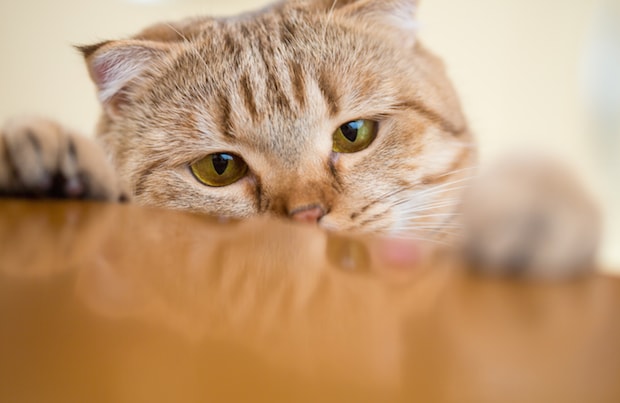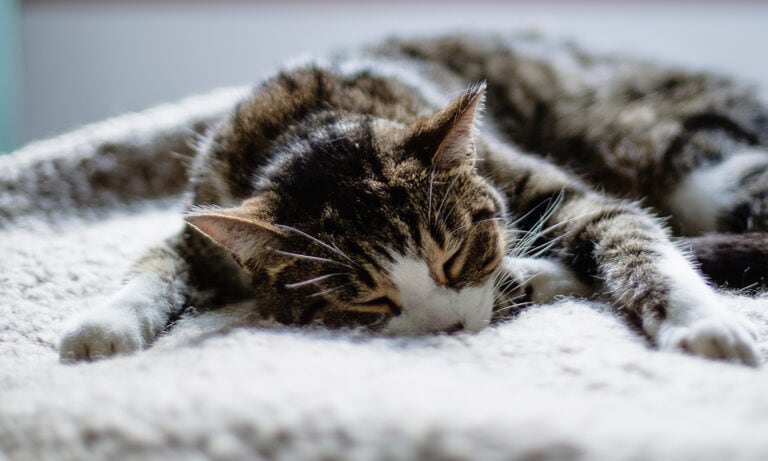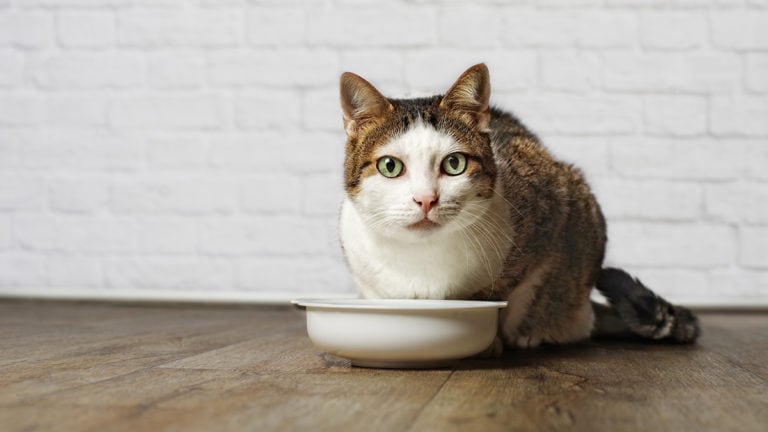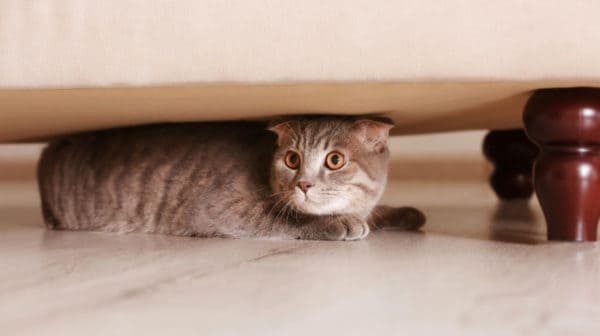Ask any cat parent about what their feline companion’s favorite thing to steal is and you’ll hear a plethora of all things stringy, stretchy, and rolly.
Cats are natural kleptomaniacs — they love to prey on harmless household items and pile them up under beds, sofas, refrigerators, and anywhere your hands can’t easily reach. They’re clever creatures that use stealing as a tactic for attention, play, and food, or sometimes they’re simply following their animal instincts. Though a cat’s affinity for stealing and hiding your shoe laces and hair ties is fairly harmless, there are times when this curious behavior could be cause for concern. Let’s take a look inside kitty kleptomania.
Why Do Cats Steal?
If you’ve ever watched your cat wiggle her butt and pounce excitedly onto her cat toys like a lion to a zebra, then you know household cats are also natural predators. According to Dr. Aimee Simpson, the Medical Director of VCA Cat Hospital of Philadelphia this behavior is, “A mix of that want to have the hunt, and because they’re not getting all of that stimulation they normally would get as outside wild cats.” She adds, “We recommend that people keep their cats indoors for a healthier longer lifespan, [but] without all of that stimulation, they’re left to their own devices and they do get bored. Boredom and lack of environmental enrichment is kind of at the heart of the stealing issue.”
Your cat might also simply be seeking attention or play when she steals your stuff. You might have the instinct to discipline your cat for hiding all of your socks behind the bookshelf, but Simpson warns this might be exactly what the cat wants, “You have to keep in mind that any interaction with a cat is sometimes positive for them, even if your intention is not for it to be…if you do need to retrieve the item, just wait until they are done with it, unless it’s something that you’re worried about them eating right away, and then put it in a place where they can’t get to it.”
Another reason your cat is dangling a necktie from its mouth like a proud hunter is that he’s not satisfied with his cat food or eating schedule. Cats in the wild will eat periodically throughout the day, which unfortunately for domestic cats, doesn’t happen when their parents are out at work for the majority of the day. When cats are out in the wild they like to nest with their families. According to Dr. Elizabeth McKinstry, VMD, cats in the wild will sometimes bury their food so they can eat it later. When cats steal and hide items, they may be mimicking this food-related behavior.
If your cat is a mother who has been separated from her kittens, she may just be displaying her maternal behavior. A cat may nab a plush toy and carry it around in her mouth and protect it as she would her own.
Cats might also simply be territorial and by taking your shoes and bracelets they’re saying, “this is mine.” The important thing to remember is that cats are individuals with personalities and their reasons for being adorable little kleptos are unique to them.
When Should I Be Concerned About This Behavior?
Though cats stealing and hiding objects is usually harmless and playful behavior, there are times when it can be a cause for concern. Since many of the objects cats like to steal (hair elastics, rubber bands, paper clips) are also ingestible, these could cause a harmful obstruction. Dr. Simpson says she removed up to 50 hair elastics from one cat’s intestines and an entire bathing suit top from another kitty’s stomach. Cats are quite methodical about stealing and eating—your cat could very easily pull a headband from your head while you sleep!
If a cat’s stealing habits seem out of the ordinary, Simpson urges pet families to seek a veterinarian’s advice, “Any deviation from the normal for a cat could potentially be a red flag that they’re not getting what they need at home or could be an indicator for a medical condition. Cats are great hiders of illness,” she says. If your cat chews on objects or fabrics, they may be getting pleasure out of experiencing a different mouth feel. However, if this behavior is compulsive then it may be linked to gum disease or Pica, a condition in which cats ingest and suck on foreign materials. According to UC Davisresearchers, Pica can be linked to feline leukemia and feline immunodeficiency virus. So if your cat is exhibiting any of this behavior, take them to a vet immediately to get checked out.
What Can I Do To Prevent or Stop Kitty Kleptomania?
Both Simpson and McKinstry recommend taking some extra time to play with your cats to satiate their need for attention. Cats are most active at night time, so if your kitty keeps you up at night, Simpson recommends scheduling some play time right before bed to tire your feline friend out and get them on the same sleep schedule as you. Interactive toys are the most stimulating for cats as they can mimic the predator/prey relationship best and encourage the most movement.
When it comes to food-related crimes, invest in a food puzzle. It’s a fun way for cats to go on the hunt, have meal times better paced out, and to keep their minds active,
If there are particular items your cat just loves to steal, but you don’t want her to get her paws on it, then lock the items up in places your cat can’t get to—and really lock them up, because every cat parent knows that they’ll find a way to get into drawers and cabinets.
One of the best ways to prevent your cat from thievery is to provide a stimulating environment. Cats love perches, resting areas, scratching posts and places to have some solitude. When it comes to training against this behavior, both doctors strongly encourage positive reinforcement. Reward good behavior like dropping or returning an item they shouldn’t have instead of scolding them when they do take it. For cats, even “negative” attention can be processed as positive because they’re getting a reaction or being stimulated.
Image via Shutterstock

Rachel Semigran is a top improviser & has performed at several comedy festivals. Along with writing & comedy, she’s an expert cheese monger.
Share:









